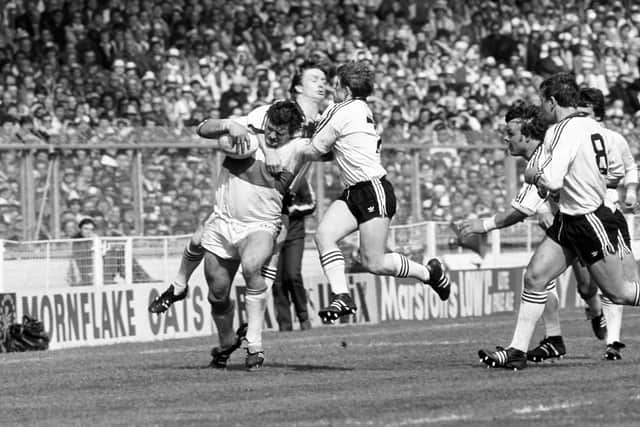Phil Lowe obituary: Hull Kingston Rovers legend was one of rugby league's brightest stars
One of the best running second row forwards rugby league has known, his career spanned 17 seasons and took in 418 appearances for KR, sixth in the club’s all-time list.
Phil Lowe was born in Hull in January 1950, raised on the Bilton Grange estate and was signed to Rovers from Jervis Youth Club on his 16th birthday. A former Hull and Yorkshire schoolboys’ captain, he quickly progressed through Rovers’ Juniors and ‘A’ teams into the first team, where he made his debut in March 1967.
Advertisement
Hide AdAdvertisement
Hide AdHe earned a regular second-row place the following season, when he appeared in 44 of the 49 matches. Standing 6ft 2in, he was a powerful physical presence and was renowned for his unrivalled pace


He was the youngest member of the victorious 1970 Great Britain tour party to Australasia, and although he didn’t play in the historic series against the Aussies, he was able to work one-to-one on his game with coach Johnny Whiteley, who had tried to sign Phil for Hull FC before he joined Rovers, and was a great admirer.
Arguably his most successful season was 1972/73, during which he scored 26 tries. The following year, he emigrated to Australia and spent three years with Manly Warringah (now the Sea Eagles). He scored 25 tries in 72 games for Manly, including their only try in their 1976 Grand Final success over Parramatta.
He returned to Craven Park in October 1976 and was a regular member of the side until his retirement in 1983.
Advertisement
Hide AdAdvertisement
Hide AdHis tally of appearances for Rovers was bettered only by Roger Millward and Steve Hartley.
After his retirement from playing, Phil had a short spell coaching at York before two spells with Rovers as a director, serving as club chairman between 1992 and 1994 and more recently as football director.
He is survived by his wife, Avril, and by his son and daughter.
Comment Guidelines
National World encourages reader discussion on our stories. User feedback, insights and back-and-forth exchanges add a rich layer of context to reporting. Please review our Community Guidelines before commenting.